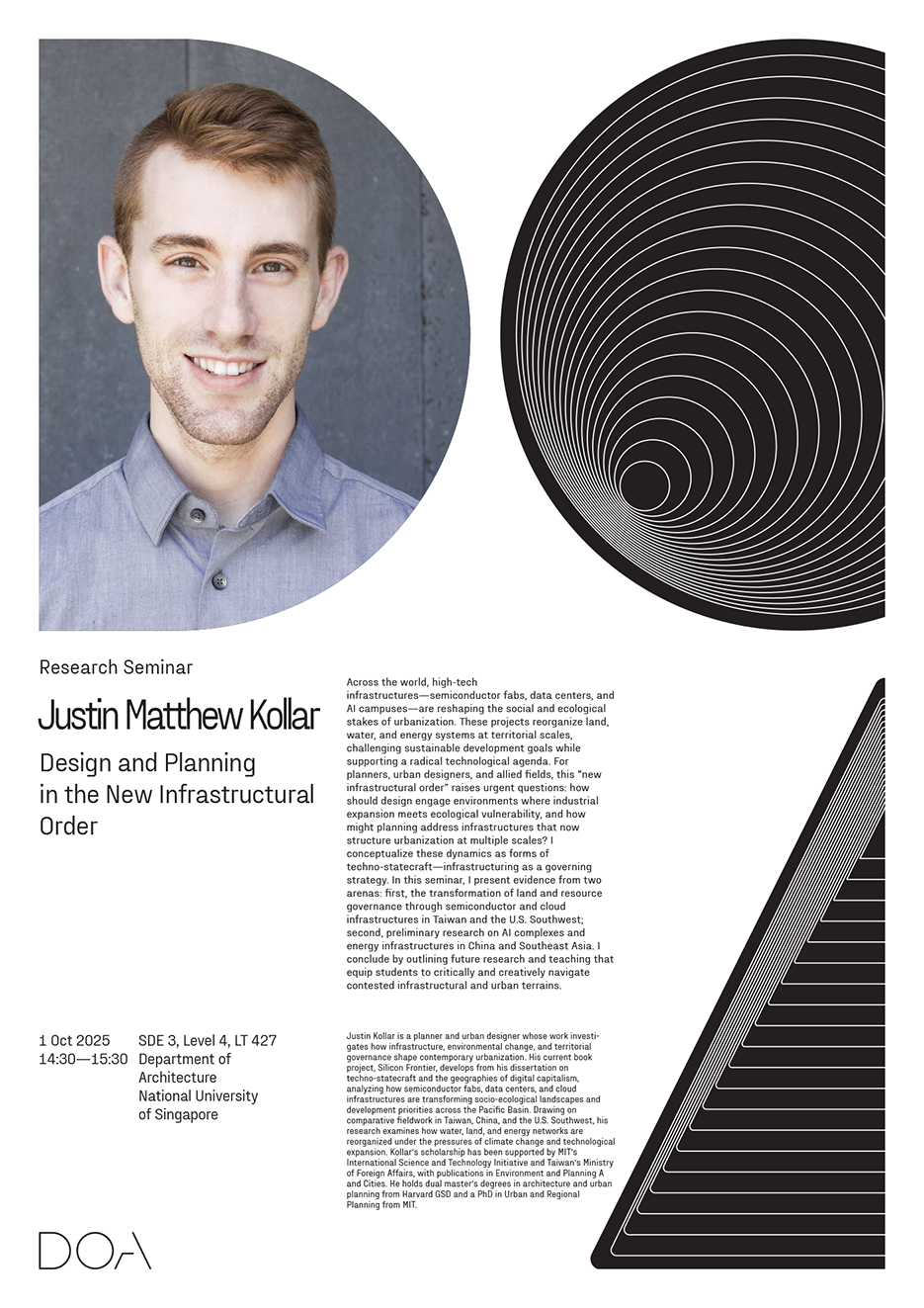Design and Planning in the New Infrastructural Order
Name of Event/Lecture
Design and Planning in the New Infrastructural Order
Name of Speaker
Justin Matthew Kollar
Location
SDE3 Level 4, LT 427 Design Forum

You are cordially invited to attend the research seminar by Justin Matthew Kollar:
Date: 1 October 2025
Time: 2:30 PM – 3:30 PM
Venue: SDE3 Level 4, LT427
Design and Planning in the New Infrastructural Order
Across the world, high-tech infrastructures—semiconductor fabs, data centers, and AI campuses—are reshaping the social and ecological stakes of urbanization. These projects reorganize land, water, and energy systems at territorial scales, challenging sustainable development goals while supporting a radical technological agenda. For planners, urban designers, and allied fields, this “new infrastructural order” raises urgent questions: how should design engage environments where industrial expansion meets ecological vulnerability, and how might planning address infrastructures that now structure urbanization at multiple scales? I conceptualize these dynamics as forms of techno-statecraft—infrastructuring as a governing strategy. In this seminar, I present evidence from two arenas: first, the transformation of land and resource governance through semiconductor and cloud infrastructures in Taiwan and the U.S. Southwest; second, preliminary research on AI complexes and energy infrastructures in China and Southeast Asia. I conclude by outlining future research and teaching that equip students to critically and creatively navigate contested infrastructural and urban terrains.
Justin Kollar is a planner and urban designer whose work investigates how infrastructure, environmental change, and territorial governance shape contemporary urbanization. His current book project, Silicon Frontier, develops from his dissertation on techno-statecraft and the geographies of digital capitalism, analyzing how semiconductor fabs, data centers, and cloud infrastructures are transforming socio-ecological landscapes and development priorities across the Pacific Basin. Drawing on comparative fieldwork in Taiwan, China, and the U.S. Southwest, his research examines how water, land, and energy networks are reorganized under the pressures of climate change and technological expansion. Kollar’s scholarship has been supported by MIT’s International Science and Technology Initiative and Taiwan’s Ministry of Foreign Affairs, with publications in Environment and Planning A and Cities. He holds dual master’s degrees in architecture and urban planning from Harvard GSD and a PhD in Urban and Regional Planning from MIT.